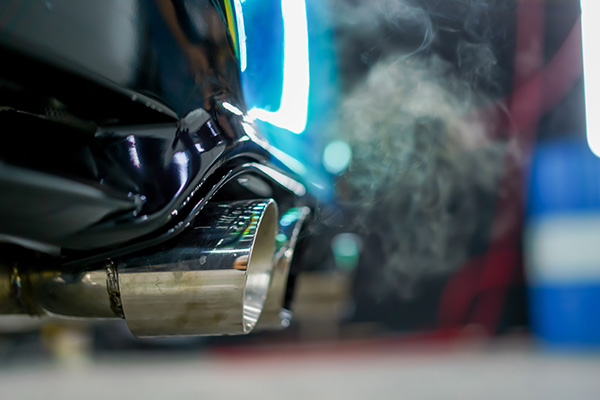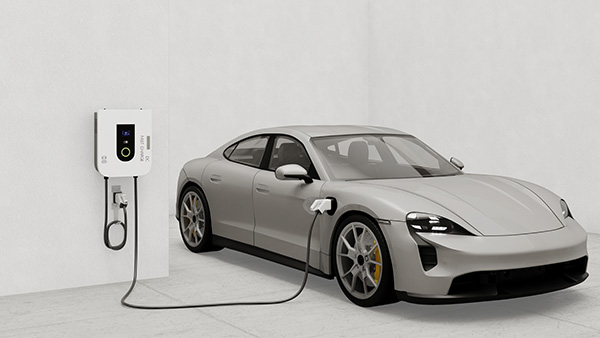Posted on 9/30/2024

Have you ever heard a strange noise coming from your car’s exhaust and wondered what it could mean? Unusual sounds like rattling, hissing, or even loud popping can be alarming, and they often indicate that something isn’t quite right with your vehicle. While ignoring these noises is easy, doing so can lead to bigger problems. Identifying the cause of these noises early on is key to keeping your car running efficiently, whether it's a minor issue or something more serious. We'll share some of the most common reasons your car’s exhaust might be making strange sounds. Exhaust Leak One of the most common causes of unusual exhaust noise is a leak. If your car is producing a hissing sound, particularly when accelerating, an exhaust leak could be the culprit. Leaks typically occur when parts of the exhaust system become damaged, corrupted, or worn out, allowing exhaust gasses to escape. These leaks not only create a noise issue but also pose a pote ... read more
Posted on 8/27/2024

Electric vehicles (EVs) are rapidly becoming more popular as concerns about environmental sustainability grow and technology continues to advance. One of the main questions people have when considering an electric car is whether they’re cheaper to maintain compared to traditional gas-powered vehicles. With fewer moving parts and an entirely different powertrain, EVs come with a unique set of benefits and challenges. Fewer Moving Parts Means Less Wear and Tear One of the biggest reasons EVs are generally cheaper to maintain is that they have fewer moving parts compared to a gasoline-powered engine. An internal combustion engine has hundreds of parts working together, including pistons, crankshafts, valves, and fuel injectors, all of which require lubrication, cooling, and periodic replacement. Electric vehicles, on the other hand, rely on a battery and electric motor, drastically reducing the number of components that can wear out. For example, there’s no ... read more
Posted on 7/29/2024

When navigating winding roads on a rainy day, your car's tires can struggle for grip. Without a system designed to assist in these moments, you'd likely find yourself skidding or losing control. This is where traction control steps in to help you and ensure vehicle safety. But how exactly does it work, and what makes it such an essential component of modern vehicles? The Basics of Traction Control Traction control is more than just a flashy feature on your car's dashboard. It's a sophisticated system that plays a vital role in maintaining your vehicle's stability. Its main job is to prevent wheel slip by adjusting power distribution or applying brakes to specific wheels. By doing so, traction control helps ensure that your tires maintain the best possible grip on the road, even in challenging conditions. When driving through a patch of ice or on loose ... read more
Posted on 6/28/2024

There's something magical about hitting the open road, isn't there? The allure of the journey, the promise of adventure, and the thrill of discovering new places all contribute to the irresistible charm of a road trip. But as exciting as it sounds, a road trip can quickly turn sour if you're not well-prepared. That's why we've gathered 15 hacks to make your road trip experience smoother, more enjoyable, and utterly unforgettable. 1. Pack Smart, Travel LightFirst things first – packing. It's easy to overpack when you're excited about a trip, but less is more. You don't want to be wrestling with bags whenever you need something. Prioritize comfort and convenience. Opt for versatile, layered clothing, and pack items that serve multiple purposes. For instance, a cozy blanket can double as a picnic mat or an extra cushion. Don't ... read more
Posted on 5/30/2024

Maintaining a car isn't just about regular service and oil changes; it's also about how you drive and care for your vehicle daily. Many drivers unknowingly adopt habits that can be detrimental to their car's longevity and performance. Let's dive into seven common car habits you should ditch right now to keep your vehicle in top shape. 1. Riding the Brakes on Downhills When you're driving downhill, it might seem natural to keep your foot on the brake pedal. However, riding the brakes can cause excessive wear and overheating. Instead, switch to a lower gear to control your speed, allowing the engine to help brake your car. 2. Revving the Engine Before It's Warm Revving a cold engine can lead to significant wear and tear. Modern engines are designed to warm up quickly while driving, so there's no need to rev the engine wh ... read more